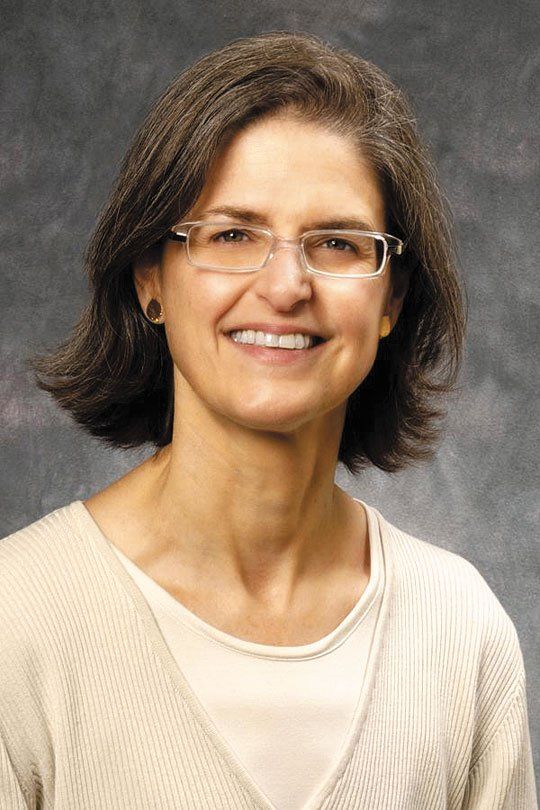- General Dermatology
- Eczema
- Chronic Hand Eczema
- Alopecia
- Aesthetics
- Vitiligo
- COVID-19
- Actinic Keratosis
- Precision Medicine and Biologics
- Rare Disease
- Wound Care
- Rosacea
- Psoriasis
- Psoriatic Arthritis
- Atopic Dermatitis
- Melasma
- NP and PA
- Skin Cancer
- Hidradenitis Suppurativa
- Drug Watch
- Pigmentary Disorders
- Acne
- Pediatric Dermatology
- Practice Management
- Prurigo Nodularis
Article
Weighing diagnosis with delivery
Read and follow along as Dr. Elaine Siegfried shares her insight into obsessive diagnosing disorder, and how it can be a blessing and a curse.

Elaine Siegfried, M.D.Last summer I wrote a column about my passion for diagnostic medicine, a trait that prompted my brother, in a moment of irony, to diagnose me with ODD (obsessive diagnosing disorder). I am stuck on the subject.
READ: Clinical pearls in pediatric dermatology
Physicians with ODD relish pathognomonic features and physician-educators love algorithms. Probability theory and information technology have enabled a more statistically analytic approach to the DDx that may one day replace the ODD physician. But the skill required to nail some diagnoses is so high-level that I doubt a computer will be able to replace a pediatric dermatologist in my lifetime.
Considering an expanded DDx is time-consuming. Physicians with ODD are very thorough, but tend to run behind in clinic because we place a higher value on precision than punctuality. There have been many occasions when I have walked into a room, anticipating only the simple problem posted as the patient’s chief complaint or presented by the resident. But within minutes, I became aware of worrisome signs that prompted the need for a more detailed history and exam, turning what could have been a 5-minute visit into a 30-minute evaluation and counselling for a previously unrecognized syndrome.
RECOMMENDED: My easy-to-remember "isms" aid patient communication
The impact of a missed diagnosis can extend beyond the risks of the disease itself. In some cases, it triggers anxiety and mistrust of care provided for loved ones. On more than one occasion, I have been one of many physicians asked to evaluate the normal, healthy child of a parent who had been the victim of a missed critical diagnosis. A 10-year-old girl I saw last week for the third time in 6 months had been seen in the prior week by her pediatrician, by her allergist, and in the emergency room. The girl had received a thorough negative evaluation for an extensive DDx. So, my third evaluation focused on her mother’s concerns. Mom had suffered from a constellation of vague symptoms including hyperhidrosis, fatigue and headaches before acromegaly was suggested by a sorority sister-pediatrician who saw her at a 10 year reunion. That experience completely destroyed this mother’s faith in the medical system to guard her child’s health. Her daughter’s skin findings were subtle and inconsequential, but Mom’s missed diagnosis was an essential feature of a possible “vulnerable child syndrome” diagnosis.
NEXT: The ability to communicate a serious medical concern
While recognizing the disease is of primary importance, the ability to communicate a serious medical concern is a close second. This skill is one not taught in medical school or residency. And the dilemma is especially difficult when it involves the parents of newborn. Most new parents anticipate delivery of a normal child, but many expect perfection. And in the postpartum milieu, an unforeseen congenital anomaly can be devastating. A pediatric dermatologist is often the person charged with confirming and delivering the diagnosis and providing prognostic information to anxious parents. While I am grateful for the education and experience that has given me this medical expertise, I doubt that I will ever feel adept at delivering bad news. It helps to be prepared for emotions and questions and to offer next-step solutions.
INTERESTING: Doctor faces obstacles as patient advocate
Sometimes, the urge to tell someone about a worrisome finding strikes outside of a doctor-patient relationship. Our trained eyes place dermatologists at especially high risk for this type of ODD.
My first experience was as a resident, when I spotted a basal cell on the face of a future in-law I had just met at a family gathering. After that, my ability to continue the casual conversation was hijacked by a cerebral struggle about whether or not to mention the skin cancer, which I finally did.
A later publication1 documented that the effort can be much-appreciated and even life-saving. But it may also be interpreted as an invasion of privacy. An unpublished 1990s study by Neal Penneys examined this issue. This random survey asked people to report their reaction to an unsolicited comment from a stranger who introduced herself as a dermatologist and recommended further evaluation of a suspicious skin lesion. As I recall, most responders would appreciate this information, but a significant minority would not. Reconciling this conundrum is even more difficult in the setting of a diagnosis that could unify a constellation of heritable, syndromic signs and symptoms. I recently faced that challenge when meeting multiple, seemingly affected family members of a friend. In that case, I followed my brother’s advice and controlled the ODD urge.
ALSO READ: Nailing the diagnosis
ODD physicians choose cognitive medical specialties, rather than those that require the treat 'em and street 'em approach. And because we are so interested in solving diagnostic puzzles, we are willing consultants. I am happy to help colleagues who contact me about their difficult cases. But part of my expertise is not what, but who I know. So I am also very grateful to my colleagues who have been extraordinarily generous with their time and expertise in generating DDx for remote eConsultation requests on behalf of many patients in the U.S. and abroad. ODD is both a blessing and a curse. So I’ll be discrete about diagnosing them with my disorder.
References:
1. Gilbert B. My Guardian Angel Wore a Big Hat at Sea World! Arch Dermatol. 2000;136(5):673





